Connect with us
Published
1 year agoon
By
Admin
Olu Agunloye writes; The Tikanga for Alliances, Coalitions for Good Governance and Life More Abundant
by Dr Olu Agunloye, National Secretary, Social Democratic Party
15 February 2025
… forming a well-conceived alliance to contest for power with a goal to bring national happiness in respect of quality of life, well-being and satisfaction with governance.
Political realignments, regroupings, alliances, and nocturnal meetings to grab power are seasonal. They are soaring to high towers as a major federal election is on the way. It is essential to let all those desiring impactful change through collaborations to understand that this must be based on basic principles of harnessing consensus around good governance to bring happiness to the people as basic dividends of democracy, otherwise they will fail again even when they succeed in grabbing power.
HISTORICAL alliances: In the first Republic, two alliances were hurriedly put together in 1964. They were the United Progressive Grand Alliance, UPGA by two parties, the National Council of Nigeria and the Cameroons (NCNC) and Action Group (AG) and the Nigerian National Alliance, NNA by the Northern People’s Congress (NPC), Nigerian National Democratic Party (NNDP) and Midwest Democratic Front, (MDF) to win the 1964 federal elections “by all means”. The NNA won at the end but could not produce national development and both were terminated by the January 1966 coup d’etat. Neither UPGA or NNA was secured on compatibility or convoked on any ideology, instead they were anchored on political expediencies and the unrestrained desire to seize power.
Ironically, fifty years later, the All Progressives Congress (APC), was formed by the Action Congress of Nigeria (ACN), Congress for Progressive Change (CPC), All Nigeria Peoples Party (ANPP) and with factions of the All Progressives Grand Alliance (APGA) and People’s Democratic Party (PDP). Barely a year after, APC went into election and dislodged PDP which had been in power for 16 years. But the alliance called APC was not based on any ideological foundation, like the NNA, it was a contraption based on unrestrained desires to seize power and control the system of rewards. After 10 years, Nigeria, under APC, still lacks sustainable development, and is faced with pervasive national insecurity, inadequate infrastructure, in abject poverty with poor health care, poor educational system and severe social insecurity, all because the political class convoked an alliance for the purposes of winning elections and not to initiate and drive national development. On the World’s Happiness ranking, Nigeria was ranked 102nd in 2024 having become more unhappy than in 2023 when it held the ranking of 95th position.
NEWER Alliances: The most prominent coalition after the APC, was the 36-party Coalition of United Political Parties, of 10 July 2018. The genesis of this coalition can be traced to the meetings of 15 to 20 parties in 2017 mostly at Ajuji Greenwich Hotel in Abuja. The Ajuji meetings basically set out rules of engagement for alliances and coalition especially the qualifications of the coalition platform. After the Ajuji Meetings, a section of the PDP led by Professor Jerry Gana and Professor Tunde Adeniran renewed the push for a coalition of multiple parties with meetings at Grand Pela Hotel and Sheraton Hotel, all in Abuja. Eventually the group which cut across the federation officially fused into SDP by March 2018 bringing significant innovation and potentials into SDP. However, it was a final push of the mainstream PDP in May 2018, superintended by the then SDP National Chairman, Chief Olu Falae, that led to the birth of the Coalition of United Political Parties (CUPP2018).
Although the CUPP2018 was crafted to support joint presidential candidates and a common platform for them to contest and be bound to form a Government of National Unity, nonetheless, it put the cart before the horse in some respects especially because it produced the alliance agreement before detailing the criteria and process for selections, and the principles and objectives of the alliance. The Alliance drivers later moved to provide selection processes and the Blueprint Manifesto, but the Coalition could not follow its plans probably because they were hurriedly put together a few months before the election which it lost.
The National Consultative Front (NCF) driven by Comrade Wale Okunniyi, Prof Pat Utomi, Alhaji Buba Galadima, Hon Ghali Na’abba, Dr Hakeem Baba Ahmed and others, tackled the flaws in previous alliances. In 2021, NCF produced a better structured coalition by creating its policies and objectives ahead of the alliance. NCF also produced a pathway to winning a presidential election, a procedure for ensuring inclusiveness, and criteria for selecting candidates as well as an emergent merger party. Sadly, NCF could not implement its lofty plans in time to win the 2023 elections.
Correct Alliance: Serious minded politicians must look beyond the activities of power seekers causing agitations and drama to pay more attention to alliance for sustainable development which must be anchored on pre-set principles and ideology so that it does not fail. Such an alliance must seek a consensus for good governance and must be set up methodologically and implemented in line with INEC timelines and guidelines for the election in 2027. It must obtain a consensus around ensuring national security and well-being of the people, around social justice and basically providing life more abundant for the people of Nigeria. In fact, the ultimate goal of a well-intended alliance for power must be to seek happiness and life in its abounding fullness of joy and strength for the ordinary people.
The Ajuji Meetings of 2017 and the NCF Sessions of 2021 identified the ideal platform on which an alliance for sustainable development could be formed. The Social Democratic Party (SDP) is well suited for this, though it may not be the only option. The alliance platform should not be limited to those who have grievances against the government but open to all who desire good governance, and this must be well understood from the onset.
Creating the framework for correct alliance for development can draw ideas from three epic past experiences. Firstly, the CUPP2018 which was a well-laid out programme of alliancing. Secondly, from the NCF2021 procedures which refined details of alliance building beyond the CUPP2018 limits. Thirdly, from a less flamboyant group led by Hon. Peter Ameh, Barr. Yunusa Tanko, Hon. Eyiowuawi Rasak and others which made further contributions in 2022 to building alliances by parties and associations which may not want to lose their original identities. Thereafter, an appropriately conceived alliance may setup an Implementation Agenda with timelines and set forth in good time to implement its strategies and campaigns in line with INEC constrictions to contest for power with a goal to bring national happiness in respect of quality of life, well-being and satisfaction with governance.
Dr Olu Agunloye. 15-02-25.
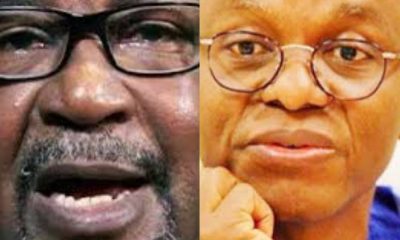

SDP nat. secretary Olu Agunloye raises alarm over plot to unseat him by members loyal to El-Rufai …forwards petition to IG Egbetokun
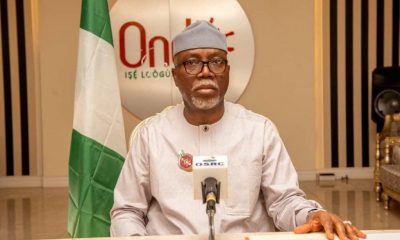

OLU AGUNLOYE WRITES: CHARGES AND CHALLENGES BEFORE AIYEDATIWA AND THE SUNSHINE STATE


Dr. Olu Agunloye writes; Superficial Change in Nigeria’s Educational Systems Uncalled-for
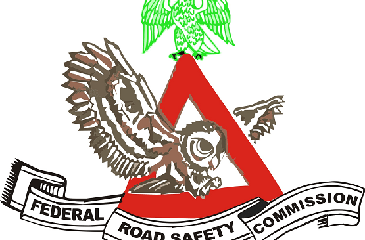

FRSC: COLLABORATING WITH STATES IS VITAL FOR SAFER ROADS –By Agunloye
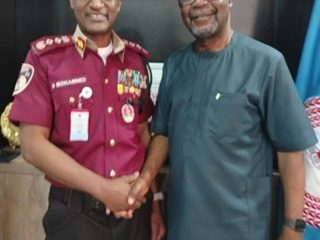

Pioneer Corps Marshal, Agunloye visits FRSC Headquarters, says agency on path to become model in Africa
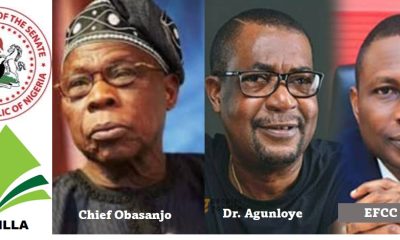

The Agunloye Trial: CONTRACTS, CRIMES AND CRIMINALISATION OF MAMBILLA… the Mambilla trial is based on criminalisation conspiracy
